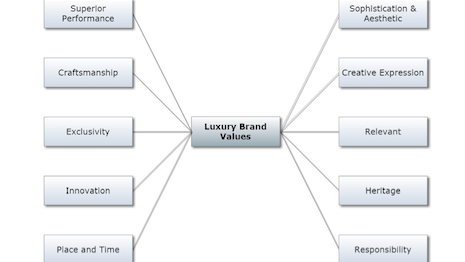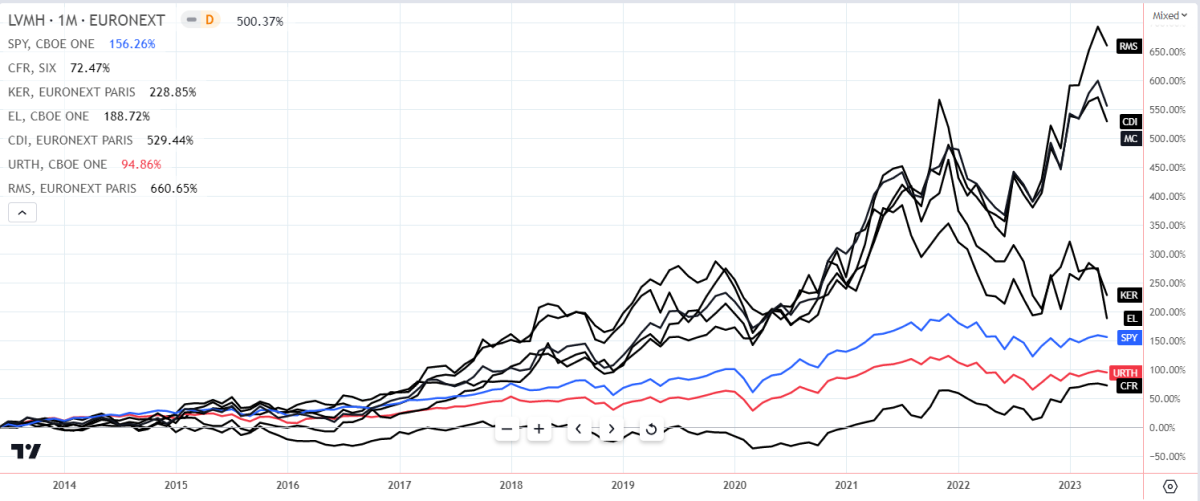The luxury industry is entering a pivotal moment in 2024, as it navigates through the challenges and opportunities that lie ahead. After experiencing a rollercoaster ride during the pandemic years, the luxury sector is now preparing for a new set of circumstances. In this article, we will explore five key predictions for the luxury market in 2024, including market growth, customer expectations, challenges faced by turnaround brands, the emphasis on cultural capital, and the rise of quiet luxury.
Market Growth to Slow Significantly
The luxury market is expected to experience a notable deceleration in growth in 2024. According to forecasts from Équité Research, Bain, and other consultancies, market growth is anticipated to stabilize at historical rates of approximately 4-7 percent across all regions. This signifies a departure from the unprecedented appetite for luxury that characterized the post-pandemic era and marks a return to steady, sustainable growth.
Many luxury brands are already confronting the harsh reality of this slowdown. As consumers reassess their brand investments, those with a proven track record in building long-term brand equity are emerging as winners. On the other hand, brands that pursued easy growth paths and lacked excellence in execution are facing losses. This recalibration in the market represents a shift towards sustainable growth and a greater focus on brand substance.
Rising Luxury Brand Expectations
As luxury brands implemented significant price hikes during the pandemic, consumers have become increasingly discerning. With elevated price points, clients now expect considerably more value from luxury brands. However, many brands are struggling to meet these expectations.
Conversations with leadership teams and ultra-high-net-worth individuals reveal a common sentiment: client experiences often fall short of the promises made by brands. This discrepancy not only affects service delivery but also extends to product quality and craftsmanship in some cases. Brands that attempted rapid growth by cutting corners are now facing the consequences of neglecting the essential task of creating brand substance.
This shift in consumer behavior is also influenced by the rising importance of Gen Z in luxury purchases. With their digital connectivity and higher expectations, Gen Z seeks brands with a clear personality and a distinctive brand story that aligns with their own. Brands that fail to connect with this demographic could face significant challenges, as Gen Z now constitutes a substantial portion of luxury purchases worldwide.
Challenges for Turnaround Brands
In 2024, brands currently undergoing a reset, such as Gucci, Burberry, and Ferragamo, may face a tough year. These brands are still in the process of strengthening their brand equities and may find it difficult to compete against others with more firmly established brand identities and values.
Many underperforming luxury brands are also overexposed to multibrand retailers, which presents additional challenges in a rapidly changing world of client expectations. Addressing issues related to brand storytelling, client relevance, sales channels, quality improvement, and brand experiences simultaneously is a complex task for these brands. To succeed, they must adopt audacious and distinctive creative approaches, as playing it safe in the luxury industry often leads to failure.
Emphasizing Cultural Capital and Core Values

While underperforming brands strive to improve, industry leaders are expanding their lead by emphasizing cultural capital and core values. Louis Vuitton, for example, excels in all areas and has demonstrated the power of cultural capital through strategic collaborations such as the appointment of Pharrell Williams. Similarly, Hermès, with its iconic Birkin bag, stands as a trusted brand for clients seeking long-term investments.
Leading luxury brands in 2024 are expected to concentrate on reinforcing their core values and articulating their brand storytelling with precision. This strategic focus aligns with the changing consumer mindset, where authenticity, brand heritage, and a unique narrative are increasingly valued. Brands that remain true to their essence while innovatively expressing their values are poised to take the lead.
The Continuous Rise of Quiet Luxury
Quiet luxury, characterized by a shift towards quality and substance over ostentation, is expected to prevail throughout 2024. This trend reflects a growing consumer preference for refinement, craftsmanship, and core values, departing from the fast and conspicuous consumption patterns of the past. Luxury consumers are now seeking experiences that offer more thoughtful consumption rather than impulsive purchases.
The rise of quiet luxury also aligns with the changing demographics of luxury consumers, particularly the influence of Gen Z. This generation values authenticity and substance, seeking brands that align with their own values and beliefs. Brands that embody quiet luxury and deliver exceptional quality and craftsmanship are likely to resonate with these consumers.
Redefining the Meaning of Luxury
2024 will redefine the meaning of luxury in the industry. Brands that inspire and create cultural relevance, in addition to delivering on craftsmanship and brand experiences, will be the winners. Luxury clients now expect significantly more from brands, demanding value and authenticity in exchange for their loyalty and investment. For brands seeking easy growth, dark clouds loom ahead.
In this new landscape, where clients are more discerning and value-driven, the winners will be those who can authentically connect with their audience. Luxury brands must rise to the occasion by delivering excellence in every aspect, from product quality and craftsmanship to brand storytelling and cultural relevance.
Conclusion
The luxury market in 2024 will face both challenges and opportunities. With market growth slowing down, brands must focus on sustainable, long-term growth strategies. Rising customer expectations and the influence of Gen Z require brands to emphasize value, authenticity, and a distinctive brand story.
Turnaround brands will face significant challenges as they work to strengthen their brand equities and compete against more established players. Meanwhile, industry leaders will continue to excel by emphasizing cultural capital and core values. The rise of quiet luxury reflects a shift towards quality and substance, signaling a departure from impulsive purchases.
Luxury brands that can inspire and create cultural relevance, deliver exceptional craftsmanship, and uphold their core values will thrive in this evolving landscape. As the meaning of luxury is redefined, brands must rise to the occasion and exceed customer expectations to secure their place in the future of the luxury market.

